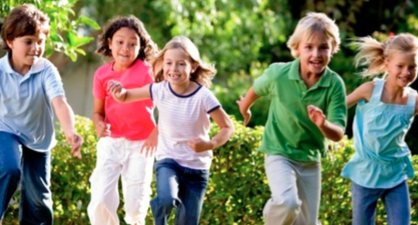2 April 2019
Media Release – The Health Benefits of Exercise for Kiwi KidsFrom: NZ Register of Exercise Professionals
We all know the benefits of physical activity for adults. Even so, actually getting active and maintaining a regular level of movement can be a challenge for many.
With some serious forward thinking, is it possible to reduce the challenge of future generations of adults to keep up activity by supporting and encouraging physical activity, and less sedentary behaviour in young people and children?
Regular physical activity improves children’s ability to learn, as well as their mental health and wellbeing, and with these benefits carrying through into adulthood.
We all know active kids are healthier and happier in the short term, but research indicates that the benefits of being active, and the toll of being inactive, may carry over into adulthood. Research also indicates that early childhood physical activity plays an important part in being active into adulthood.
In a study out of our own Otago University, researchers looked at physical activity and sedentary behavior in under 5’s and found there was a relationship between body fat and activity, even at this young age. While the fact that there are a significant number of children in the heavier than healthy category is well known, little research has been done to look at the role exercise plays in these statistics.
It’s not simply the physical side of inactivity that raises alarm bells. The development of behaviour around activity levels begins young, so children who exhibit sedentary behaviour early may carry this habit into adulthood where it becomes associated with health limiting conditions. The result of modern lifestyles, with an abundance of technology as well as environmental restrictions, are leading to generations of young people not achieving a healthy level of movement on a regular basis.
In 2017 the NZ Ministry of Health released their ‘Sit Less, Move More, Sleep Well: Active Play Guidelines for Under-Fives’, which outlines health advice that is suitable for those raising young children. They advocate that moving is important for under 5’s, not just to develop physical skills for specific tasks such as sport, but they recommend young children be active in everyday situations to encourage movements habits as well as creativity and exploration. Their guidelines are based on a summary of evidence that includes physical activity (along with good quality sleep and limited sitting for long periods) associated with better short and long-term health and wellbeing in under-fives, including a lower risk of overweight and obesity in children.
Let’s not wait to change the sedentary behaviours of adults in the future, instead let’s invest in getting our young people active now.
References:
https://www.otago.ac.nz/medical-school/news/archive/otago681849.html
https://blog.davidlloyd.co.uk/how-to-inspire-your-children-to-love-exercise/


